Over the years and around the world, PETA has exposed cruelty to animals raised for their eggs and meat. Now, video obtained by PETA India from Animals Now taken inside several of India’s hatcheries and farms reveals that workers callously tossed live chicks who were sick, deformed, “low-grade,” or male—deemed worthless by the industry—into trash bins, grinders, fire pits, and even fish ponds to be eaten alive.
Please take a few minutes to watch eyewitness footage obtained by PETA India from Animals Now and learn how you can help chicks right now.
A Painful 'Welcome' Into the World
Chicks in commercial hatcheries around the world never get a chance to meet their mothers, experience love and care, or feel the warmth of the sun. At one large hatchery in India, chicks were born with deformities, including protruding organs.
Chicks in commercial hatcheries around the world never get a chance to meet their mothers, experience love and care, or feel the warmth of the sun. At one large hatchery in India, chicks were born with deformities, including protruding organs.
Shortly after birth, both male and female chicks are commonly “sexed,” or separated by sex. Workers were filmed roughly handling chicks and pressing forcefully on their sensitive genitals. The egg industry kills most male chicks because they can’t lay eggs, and chicks born into the meat industry are also graded and killed if they’re not considered likely to produce a profit for the company.
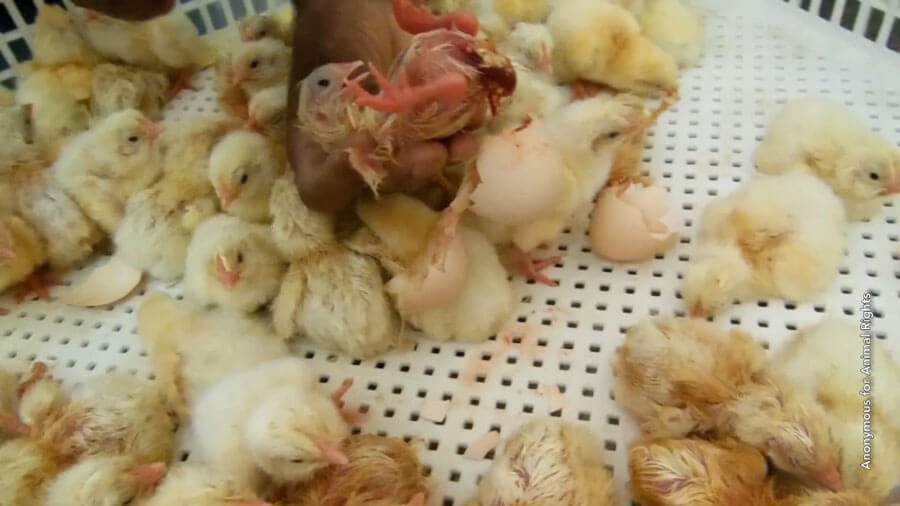
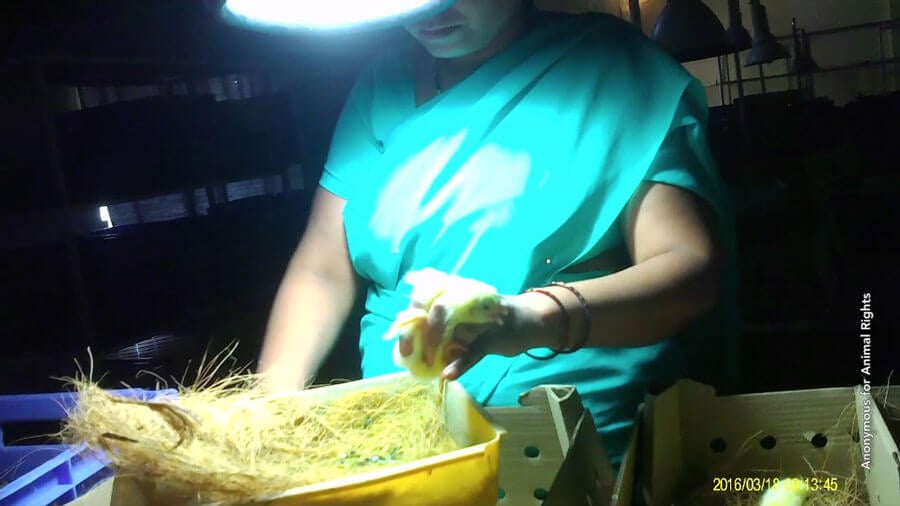
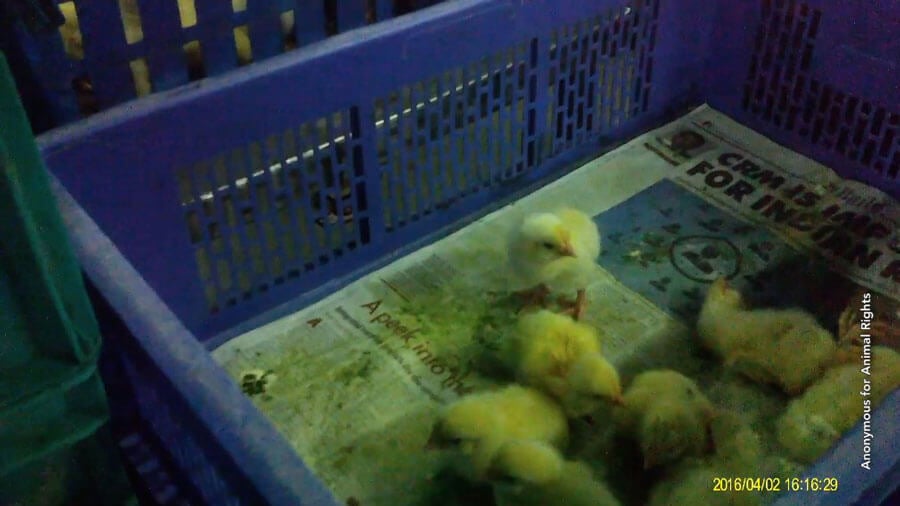
Gruesome Killing Methods
Crushing, suffocating, and grinding chicks up alive are common industry practice in the U.S., and Indian companies have adopted these cruel methods as well. The eyewitness documented that workers at one facility crushed and suffocated helpless chicks in large drums stacked on top of each other while trampling others who had fallen to the ground.
Another killing method documented at two large hatcheries in India is burning. The manager at one of the hatcheries told the eyewitness that this is a slow process. The investigator documented that burned chicks tried to escape and hide from the workers, who caught them and threw them back onto the fire.
The eyewitness also documented that workers at a hatchery attempted to drown groups of chicks by putting them in large drums and pouring soapy water over them as they desperately tried to keep their heads above water by climbing on top of each other. According to one employee, it takes up to 30 minutes for the chicks to die in this way. Other companies sell chicks to fish farms, where they are thrown directly into fish ponds to drown or be eaten alive.
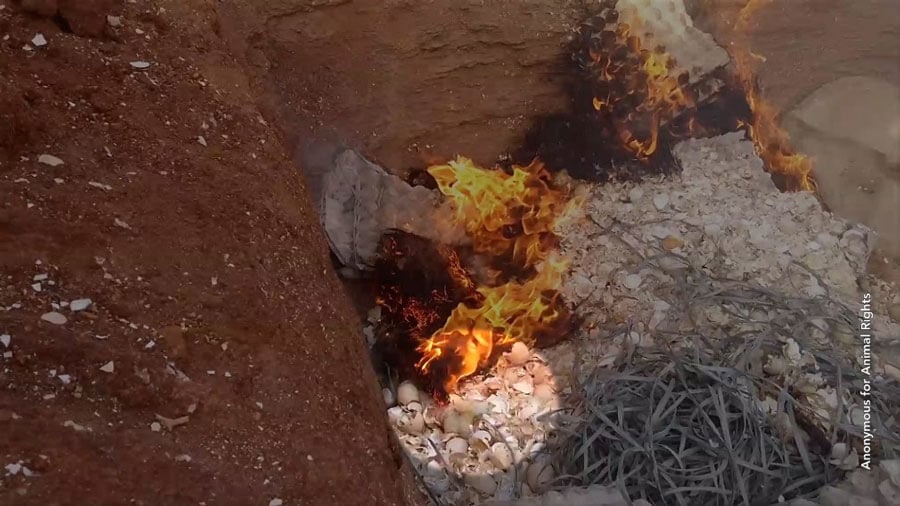
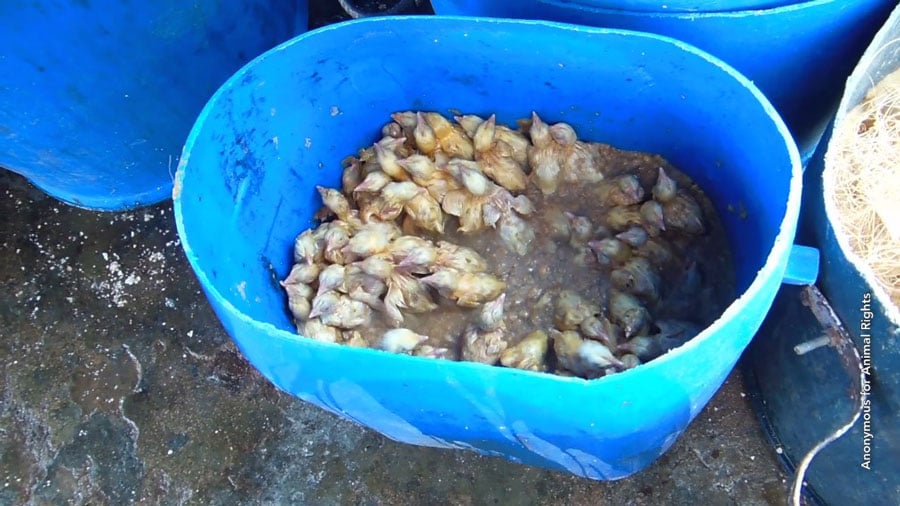
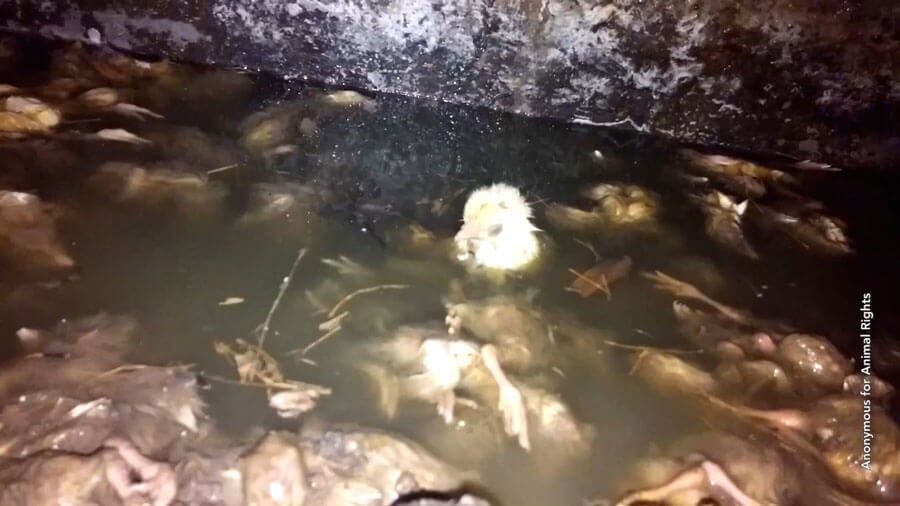
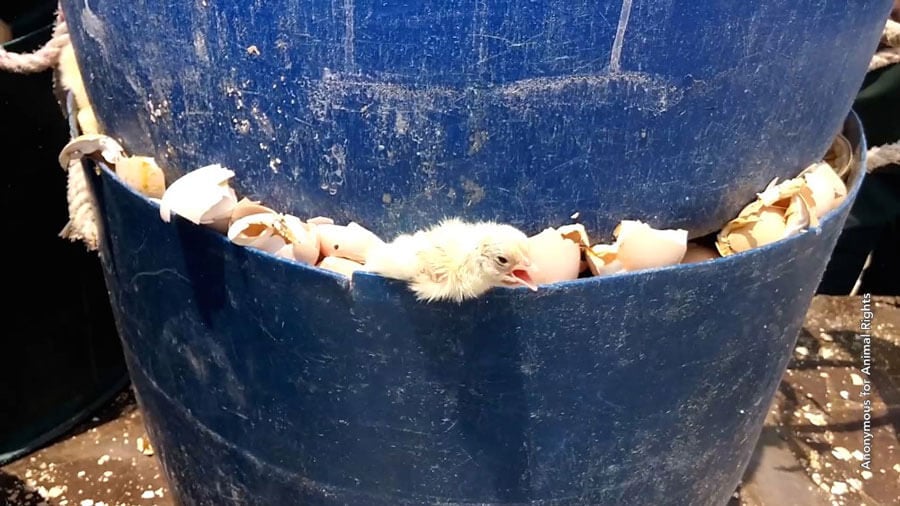
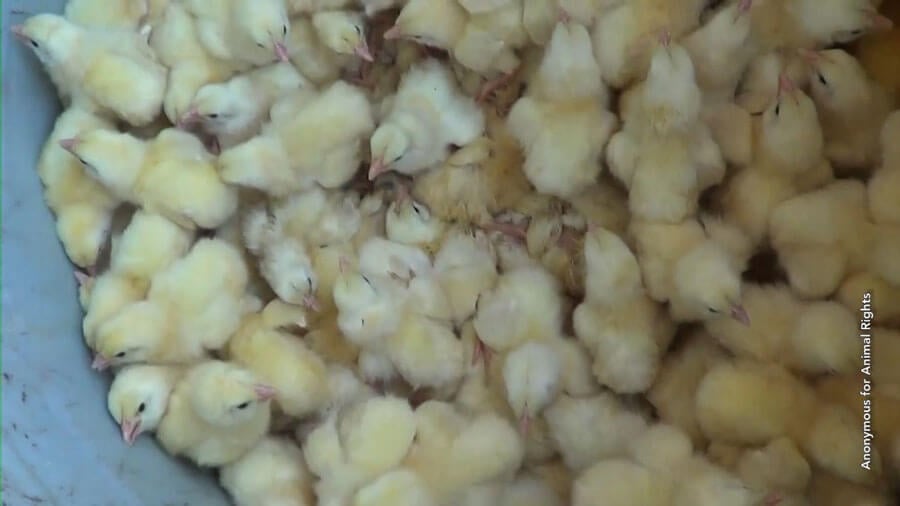
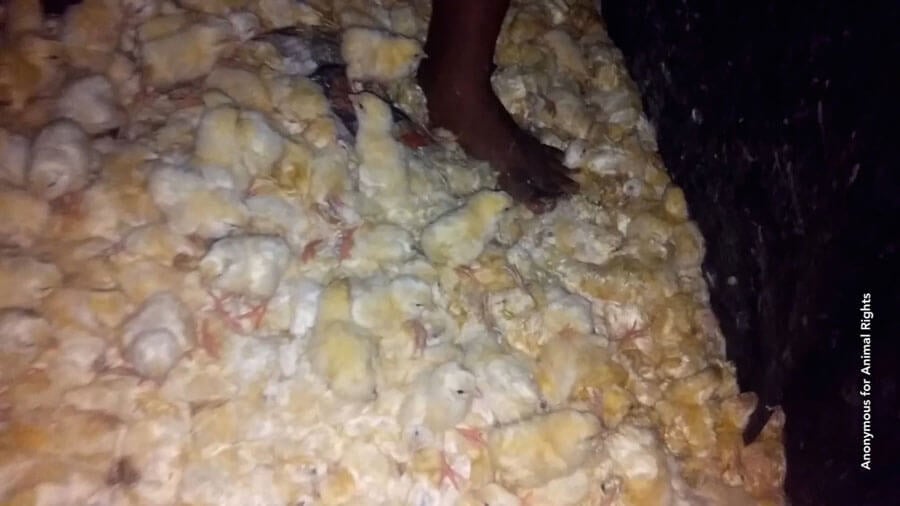
Despicable Debeaking
As in the U.S., chicks destined for the egg industry have a portion of their beaks cut off with a searing-hot blade without any pain relief. This is called “debeaking,” and it’s intended to prevent chicks from pecking each other when they lash out in frustration caused by their intense confinement. Many chicks die of shock from the pain, and some die of starvation because eating becomes too painful Many birds defecate in distress during this procedure and cry out in fear and pain.
You Can Help Stop This!
This investigation exposes the widespread abuse and suffering that chicks endure in India, but as you can see in this PETA exposé of Sanderson Farms, Inc., based in the U.S., unwanted chicks were also left to languish and suffer before finally being ground up alive.
The best way to help spare chicks suffering and a violent death is to avoid supporting industries that treat them like nothing more than garbage. Take action by demanding government regulations in facilities like these.